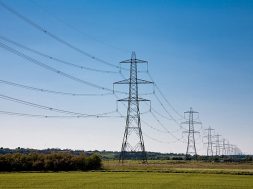
Firms cumulatively owe Rs 5,000 crore to gencos; Telangana has the highest amount of Rs 1,380 crore
Power System Operation Corporation (POSOCO), the national grid operator under the power ministry, has debarred 12 states and a Union Territory (UT) from buying/selling electricity at the spot market as a penalty for not clearing their dues to generators. Among them are power distribution companies (discoms) in Andhra Pradesh, Tamil Nadu, Telangana, Karnataka, Bihar, Jharkhand, Madhya Pradesh, Maharashtra, Chhattisgarh, Jammu and Kashmir, Rajasthan, Manipur, and Mizoram.
The defaulting discoms cumulatively owe Rs 5,000 crore to gencos, the highest being in Telangana with Rs 1,380 crore.
This is the first time the grid operator has invoked the Electricity (Late Payment Surcharge and Related Matters) Rules, 2022, to penalise discoms by disallowing them to buy electricity from alternative short-term sources.
The discoms will be unable to purchase additional power from the spot market while supply from their long-term agreements with gencos will continue.
Long-term supply too can be regulated if the default continues.

The rules, which were notified in June this year, pertain to the payment discipline of discoms, which are bound to fork out a late payment surcharge (LPS) on the outstanding amount within one month of the due date of payment.
The rate of LPS for successive months of default will increase by 0.5 per cent for every month of delay.
A further delay in clearing the dues beyond two and a half months of default will attract penalty provisions.
The rules state: “The short-term power supply to the defaulting entity shall be regulated entirely as per the process set in LPS Rules. Continuing default after regulation of short-term power supply, or continuing default in non-payment of the for three and a half months, would result in regulation of long-term access and medium-term access by 10 per cent, with progressive rise of 10 per cent for each month of default.”
This entails a complete ban on buying short-term power from the spot market and thereafter regulating medium- and long-term power supply.
Discoms have long-term power supply agreements with gencos.
According to sector experts, under the new LPS regulations, the penalty provision kicks in automatically and the discoms have to abide by it or face even stricter penalties.
The move to regulate power purchase from the spot market would cool prices at power exchanges because there will be fewer buyers.
“The options are being reduced to push them (discoms) towards payment discipline,” said a senior official.
The dues of state-owned discoms to gencos are rising even after two schemes to liquidate them.
The lion’s share of the dues is to privately owned or independent power producers (IPPs). Renewable power units too continue to see an increase.
The dues of discoms crossed Rs 1.2 trillion by July 2022.
In May this year, the power ministry notified a scheme that will enable the discoms to pay their dues in 48 instalments. If there is delay in paying an instalment, there will be a surcharge.
However, in June, it added provisions that empowered POSOCO or the National Load Despatch Centre (NLDC) to penalise defaulting discoms.
The Electricity (Amendments) Bill, 2022, also has empowered the NLDC and its regional and state-level arms to regulate electricity supply to defaulting discoms.














